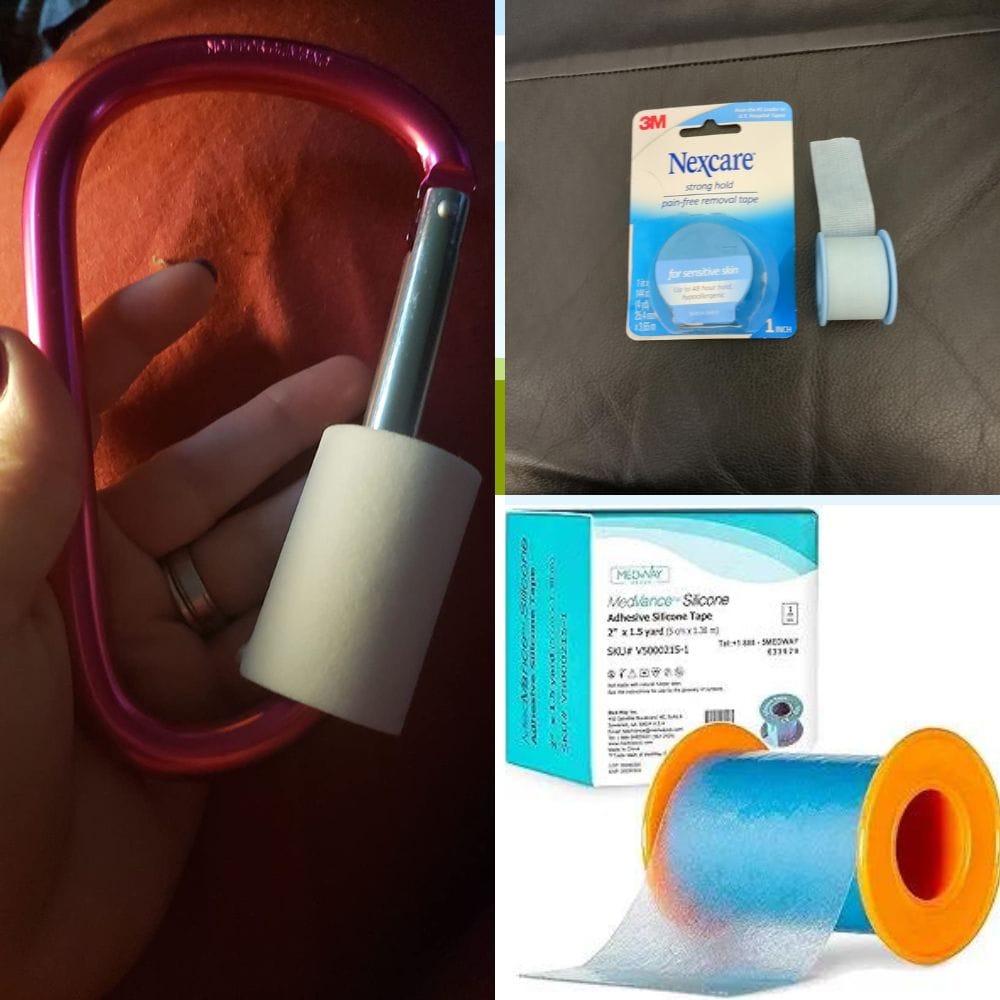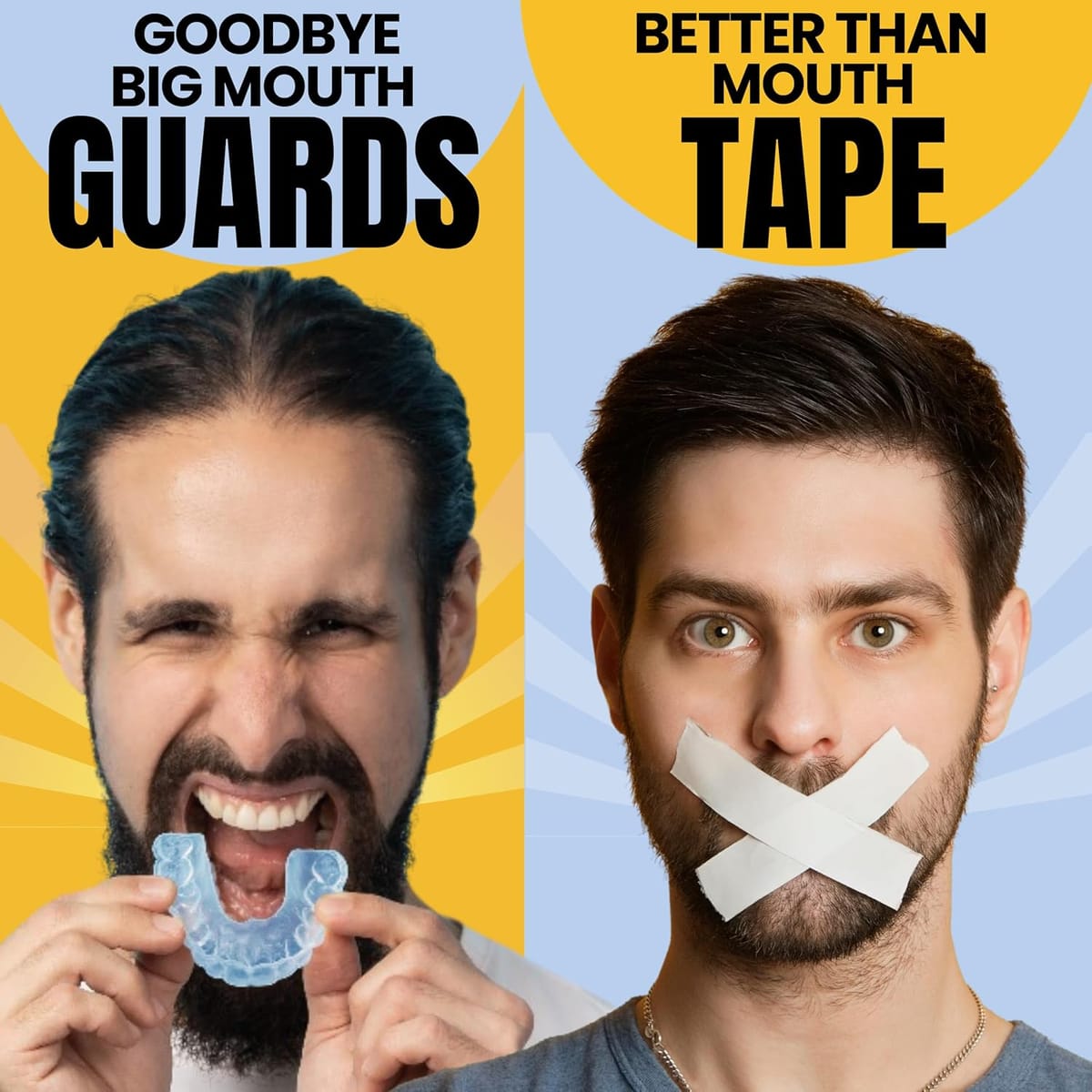Key Takeaways:
- Mouth taping is gaining popularity as a potential aid for better sleep and oral health.
- Doctors have mixed opinions on its effectiveness and safety.
- Understanding the benefits and risks is crucial before trying mouth tape.
Introduction to Mouth Taping
Mouth taping is a practice that has been making waves in the health community. It's as simple as it sounds: taping your mouth shut while you sleep. The idea is to encourage nasal breathing, which is believed to have numerous health benefits. But what do doctors say about this trend? Is it a miracle cure or just another fad?
The concept of mouth taping might seem strange at first, but it's rooted in the belief that nasal breathing is more beneficial than mouth breathing. Proponents claim it can improve sleep quality, reduce snoring, and even enhance oral health. However, before you reach for the tape, it's essential to understand the medical perspective on this practice.
The Science Behind Nasal Breathing

Nasal breathing is often touted as superior to mouth breathing for several reasons. The nose acts as a natural filter, humidifying and warming the air before it reaches the lungs. This process can help reduce respiratory infections and improve overall lung function.
Moreover, nasal breathing promotes the production of nitric oxide, a molecule that plays a crucial role in cardiovascular health. It helps dilate blood vessels, improving blood flow and reducing blood pressure. These benefits make nasal breathing an attractive option for those looking to enhance their health.
Potential Benefits of Mouth Taping
One of the primary benefits of mouth taping is improved sleep quality. By encouraging nasal breathing, mouth taping can help reduce snoring and sleep apnea symptoms. This can lead to a more restful night's sleep, leaving you feeling refreshed and energized.
Additionally, mouth taping may contribute to better oral health. Mouth breathing can dry out the mouth, leading to an increased risk of cavities and gum disease. By keeping the mouth closed, saliva production is maintained, helping to protect teeth and gums.
Risks and Concerns

While mouth taping has its advocates, it's not without risks. One of the main concerns is the potential for breathing difficulties, especially for those with nasal congestion or other respiratory issues. Taping the mouth shut can exacerbate these problems, leading to discomfort or even danger.
Another concern is the risk of skin irritation or allergic reactions to the tape. It's essential to choose a hypoallergenic tape and test it on a small area of skin before applying it to the mouth. Consulting with a healthcare professional before trying mouth taping is always a wise move.
Doctors' Opinions on Mouth Taping
Doctors have mixed opinions on mouth taping. Some see it as a harmless and potentially beneficial practice, while others are more cautious. The lack of extensive scientific research on the topic means that many healthcare professionals are hesitant to fully endorse it.
However, some doctors acknowledge the potential benefits of nasal breathing and suggest that mouth taping could be a useful tool for certain individuals. It's crucial to have an open dialogue with your doctor to determine if mouth taping is right for you.
Case Studies and Real-Life Experiences
Several individuals have shared their positive experiences with mouth taping. For instance, John, a 45-year-old from Texas, reported a significant reduction in his snoring after trying mouth tape. He claims that his sleep quality has improved, and he feels more rested during the day.
On the other hand, Sarah, a 30-year-old from California, experienced skin irritation and discomfort when she tried mouth taping. Her experience highlights the importance of considering individual differences and potential risks before adopting this practice.
How to Safely Try Mouth Taping

If you're considering mouth taping, it's essential to do so safely. Start by choosing a gentle, hypoallergenic tape designed for sensitive skin. Apply a small piece of tape horizontally across the lips, ensuring it's not too tight.
It's also advisable to try mouth taping for short periods initially, such as during a nap, to see how your body reacts. If you experience any discomfort or difficulty breathing, discontinue use immediately and consult a healthcare professional.
Alternatives to Mouth Taping
For those who are hesitant to try mouth taping, there are alternative methods to encourage nasal breathing. Nasal strips, for example, can help open the nasal passages, making it easier to breathe through the nose.
Breathing exercises and techniques, such as Buteyko breathing, can also promote nasal breathing and improve respiratory health. These alternatives may offer similar benefits without the potential risks associated with mouth taping.
The Role of Lifestyle Changes

In addition to mouth taping, making certain lifestyle changes can enhance nasal breathing and overall health. Maintaining a healthy weight, avoiding allergens, and practicing good sleep hygiene can all contribute to better breathing and improved sleep quality.
Regular exercise and a balanced diet can also support respiratory health and reduce the risk of sleep-related issues. By adopting a holistic approach, you can maximize the benefits of nasal breathing and improve your overall well-being.


Is mouth taping safe for everyone?
Is mouth taping safe for everyone?
Mouth taping is not suitable for everyone, especially those with nasal congestion or respiratory issues. It's essential to consult with a healthcare professional before trying it.
Can mouth taping help with snoring?
Can mouth taping help with snoring?
Mouth taping may help reduce snoring by encouraging nasal breathing. However, its effectiveness can vary from person to person.
What are some alternatives to mouth taping?
What are some alternatives to mouth taping?
Alternatives to mouth taping include nasal strips and breathing exercises, which can promote nasal breathing without the potential risks associated with taping.

Mouth taping is a practice that has sparked interest and debate in the health community. While it offers potential benefits, such as improved sleep quality and oral health, it's not without risks. Doctors have mixed opinions, and it's crucial to consult with a healthcare professional before trying mouth taping. By understanding the benefits and risks, you can make an informed decision about whether this practice is right for you.











